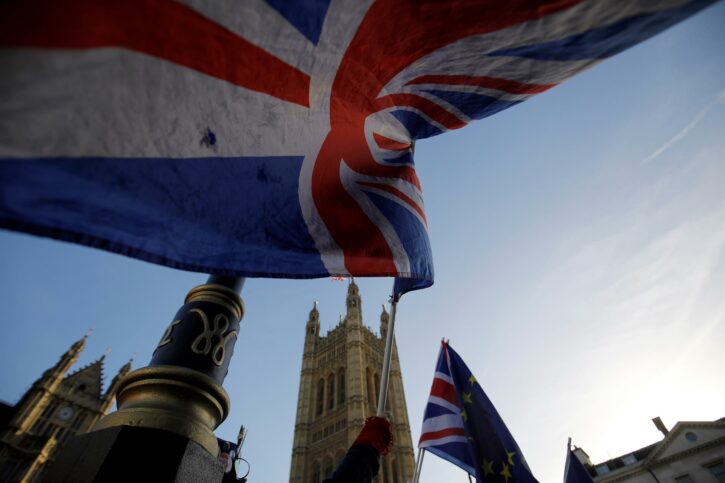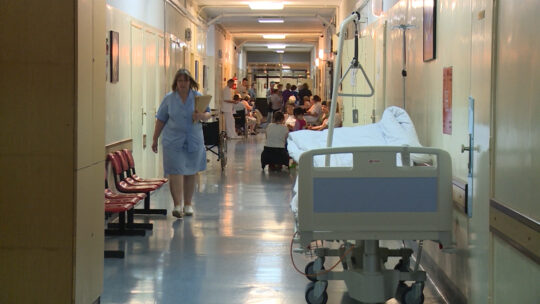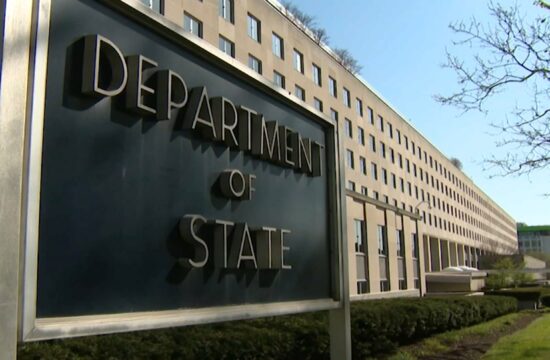
Britain will head to the polls amid the country's worst political crisis for generations, after lawmakers finally agreed to hold a landmark general election on December 12.
The election, which Prime Minister Boris Johnson has attempted to secure for nearly two months, was sealed after the Labour Party dropped its opposition and voted in support of the government's bill.
It will come as the country seeks a path out of its crippling impasse over Brexit, the issue certain to dominate the six-week campaign season.
“There is only one way to restore the esteem in which our democracy is held and to recover the respect in which Parliament should be held by the people of this country,” Boris Johnson said in the House of Commons on Tuesday before a vote was approved at the fourth attempt.
Jeremy Corbyn, who will contest his second poll at the helm of the opposition Labour Party, wrote on Twitter seconds after the vote was confirmed: “It's time for real change.”
MPs approved the bill that set the election date by 438 votes to 20, after a lengthy day of debate over the precise date of the poll and an ultimately futile attempt to reduce the minimum voting age from 18 to 16. After the measure is approved by the House of Lords in the next few days, Parliament will be dissolved next week.
Johnson had pushed for an election rather than attempting to get his Brexit deal legislation through Parliament, where the government lacks a majority and has found itself constrained to the point of paralysis.
The Prime Minister enjoys a healthy lead in opinion polls, but the move is still a risk for his Conservative Party — which lost a slim majority when former leader Theresa May took a similar gamble and called a vote in 2017.
The decision is also likely to frustrate parts of the country's weary electorate, who have already voted in three major polls since 2015 and now face the UK's first December general election since 1923.
But it provides opposition parties and voters a likely final chance to forge a path towards a second referendum on the issue of Brexit.
Country readies for winter campaign
Britain's parties will now criss-cross the bitterly divided country in search for votes, amid an electoral landscape upended by the political earthquake of 2016's Brexit referendum.
Johnson, who finds himself at risk of becoming one of Britain's shortest-serving prime ministers, will look to focus his campaign on the withdrawal agreement he secured with the EU but was unable to force through a fractured Parliament.
But he risks being punished by pro-Brexit voters for his inability to take the UK out of the bloc by October 31 — a date he infamously said he'd rather be “dead in a ditch” than miss.
And after lurching his party to the right on the issue of Europe through his expulsion of MPs who refused to support a no-deal split, his party could also lose support among moderates and anti-Brexit voters.
The Labour Party is backing a second referendum after months of soul-searching on the Brexit issue, and will be hoping to make more progress under Jeremy Corbyn, a traditionally strong campaigner who has lost ground in opinion polls since Johnson became Prime Minister over the summer.
Both parties’ plans could also be damaged by two groups with more hardline Brexit policies — Nigel Farage's Brexit Party, which advocates a no-deal split, and the resurgent Liberal Democrats, who want to cancel Brexit altogether.
Johnson confirmed before tabling the bill that the new Parliament will sit for the first time before Christmas, giving it a few weeks to deal with the political fallout of the election before Britain's new exit date of January 31.




